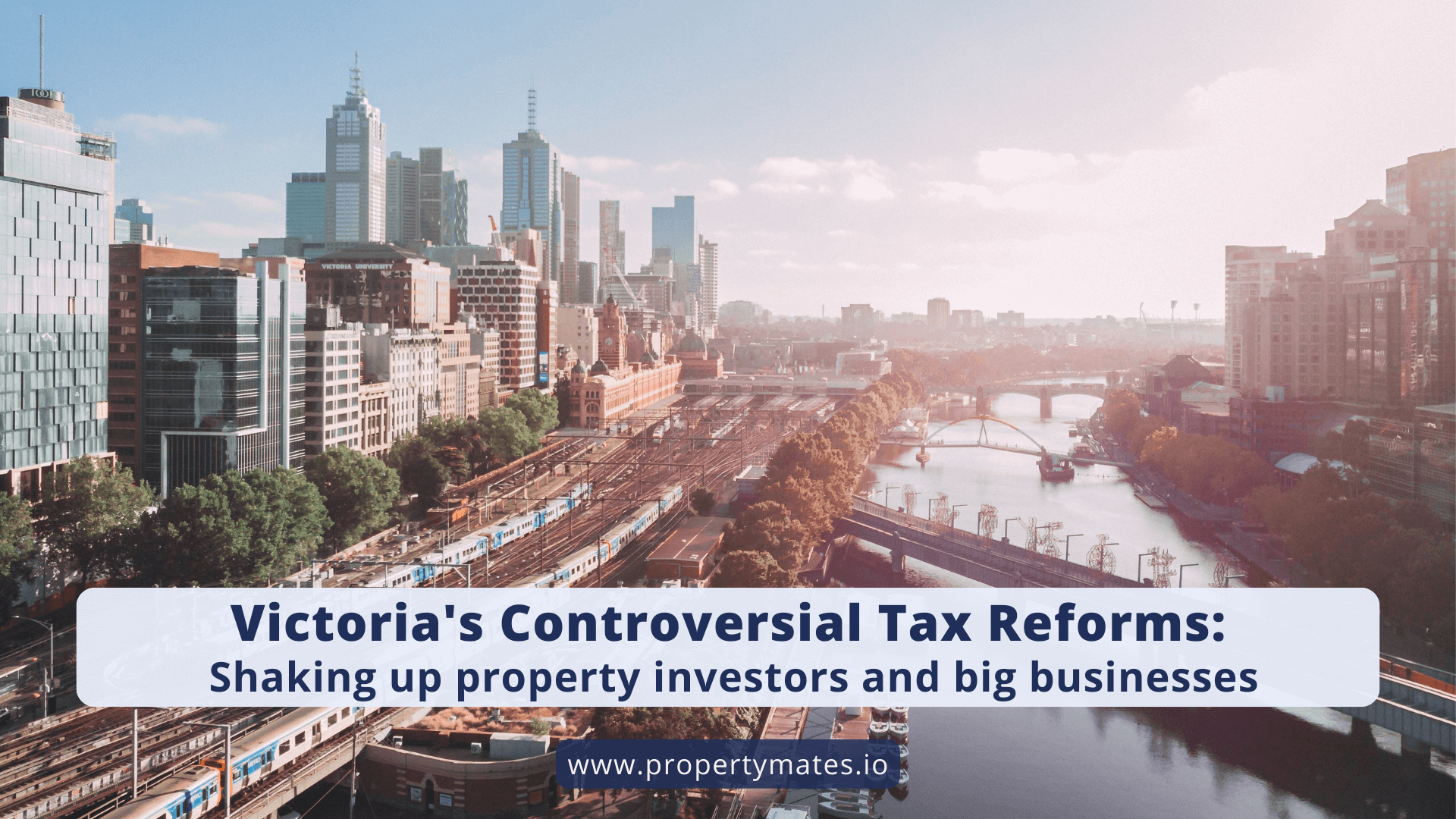Victoria’s controversial tax reforms: Shaking up property investors and big businesses

In a bold move to tackle its mounting COVID-19 debt, the Victorian government recently unveiled a 10-year fiscal repair plan as part of the 2023-24 Victorian Budget. However, the proposed tax reforms have left property investors and big businesses seething with fury.
With the introduction of a COVID-19 debt levy and significant changes to land tax, the burden of repayment falls heavily on these groups. The repercussions are far-reaching, raising concerns about the rental market, housing supply, and the overall economic climate in Victoria.
One of the most controversial aspects of the budget is the reduction of the land tax threshold from $300,000 to a mere $50,000. This means that an estimated 860,000 Victorian property owners, including investors, holiday home owners, and commercial property holders, will be hit with an additional $4.7 billion in taxes over the next four years. Shockingly, of these 860,000 owners, 380,000 have never been subjected to land tax before. The implications of this move are twofold: it not only risks a shortage of rental accommodation but also places upward pressure on rents.
Unsurprisingly, the proposed land tax increases have faced fierce opposition. The Real Estate Institute of Victoria (REIV) has been quick to criticize these measures, arguing that they will only exacerbate the rental crisis and fail to address the shortage of affordable housing.
Quentin Kilian, the CEO of REIV, argues that the government's focus on short-term solutions unfairly targets everyday investors and Victorian renters, while neglecting the underlying housing supply issues facing the state. Kilian warns that the higher land taxes will drive out small investors, leading to a decrease in supply and a subsequent rise in rental prices.
While the government aims to repay its debt, it seems to have overlooked the unintended consequences of these tax reforms. For commercial property owners, the budget means paying additional taxes without acknowledgment of the rent relief provided during lockdowns. This lack of recognition for their efforts to support small business tenants has left many feeling aggrieved and disregarded.
Amidst the backlash, the budget also brings a glimmer of hope in the form of stamp duty reforms for commercial and industrial properties. Starting in mid-2024, the plan is to gradually eliminate stamp duty and replace it with an annual property tax. This move is projected to inject an impressive $50 billion into the state's economy.
The Property Council of Australia has praised this initiative, acknowledging the potential for increased economic activity and investment in Victoria. However, the transition process and the potential impact on property owners remain subjects of debate.
While the tax reforms aim to alleviate the state's financial burden, the economic outlook remains a mixed bag. Victoria anticipates commendable growth rates of 2.75% in the current fiscal year, but the following year's growth is expected to drop to 1.5%. Nevertheless, the government projects a return to an operating surplus by 2026-27. However, this positive development is shadowed by the increase in the state's net debt, which is projected to reach staggering levels by 2026-27.
As for infrastructure, the budget introduces various projects and commitments, including road upgrades, railway expansions, and investments in healthcare and education. However, the pause on certain projects pending a federal review has sparked concerns about delayed progress and the overall impact on the state's infrastructure development.
Victoria's 2023-24 Budget has triggered a firestorm of controversy, particularly among property investors and big businesses. The reduction of the land tax threshold and the introduction of a COVID-19 debt levy have raised valid concerns about the rental market, housing supply, and the long-term sustainability of the property market.
While the phased elimination of stamp duty for commercial and industrial properties offers a glimmer of hope, questions regarding the fairness of the tax burden and the potential unintended consequences remain. As the budget's measures unfold, policymakers must strike a delicate balance between economic recovery, housing affordability, and the interests of property investors and businesses to ensure a prosperous and equitable future for Victoria.
Tips for property investors and businesses:
- Stay Informed: Keep a close eye on updates and developments regarding the tax reforms and their impact on the property market. Stay informed about any changes or adjustments that may affect your investment strategy.
- Diversify Your Portfolio: Consider diversifying your property portfolio to minimize the impact of the land tax shake-up. Explore opportunities in different regions or property types that may be less affected by the tax changes.
- Seek Professional Advice: Consult with a tax advisor or financial planner who specializes in property investments. They can provide valuable insights and help you navigate the complex tax landscape, ensuring that you optimize your financial strategies within the new tax framework.
- Review Rental Agreements: With the potential for upward pressure on rents, review your rental agreements and ensure they align with market rates. Stay competitive to attract and retain tenants while also maintaining a fair return on your investment.
- Explore Alternative Investments: If the land tax reforms pose significant challenges to your property investments, consider exploring alternative investment avenues. Look into other sectors or asset classes that may offer attractive returns and tax advantages.
- Engage in Advocacy: Join industry associations and advocacy groups to collectively voice your concerns and influence policymakers. Participate in discussions, contribute to research, and engage in constructive dialogue to ensure that your interests as a property investor or business owner are represented.
- Plan for the Long Term: Despite the uncertainties surrounding the tax reforms, maintain a long-term perspective in your investment strategy. Keep sight of the broader economic trends and the potential for recovery and growth in the property market over time.
By staying proactive, informed, and adaptable, property investors and businesses can navigate the challenges presented by the tax reforms in Victoria's 2023-24 Budget. While the road ahead may be uncertain, strategic decision-making and a focus on long-term goals can help ensure continued success in the ever-evolving property landscape.

 Log In
Log In









